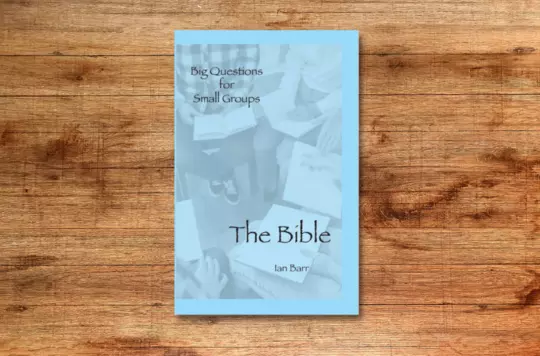23 September 2023
The parable of the tenants
Lieutenant Matthew Stone
Lieutenant Matthew Stone sows some ideas on how rejecting God will reap its own harvest.
Key text
A couple of weeks ago, my two-year-old moved up to the toddler room at nursery. Some things remained familiar – staff he already knew and friends who moved up with him. At the same time, he faced the challenge of some things being less familiar. In the past few weeks, many children and young people will have had similar experiences as they have settled into a new class, a new timetable and, for some, a new school.
As we read our study passage, let us explore the familiar as well as, perhaps, the less familiar.
Pause and reflect
- As you read this parable, what is familiar to you?
- What challenges you?
- How do you imagine Jesus?
The synoptic Gospels – Matthew, Mark and Luke – present Jesus telling this parable at the start of Holy Week, during some of his final and most controversial moments with the spiritual leaders. In his overturning of the money changers’ tables (see vv12–17) and his response to the attempted entrapment and challenge to his authority by the Temple authorities (see vv23–27), we encounter a confrontational Jesus.
As we shall see in their response (see v46), Jesus tells this parable in a way that meant those listening knew that he was addressing them.
In my personal devotions, I am challenged to read Scripture as though God is personally addressing me. Although Jesus was speaking into the lives of his original audience, how do his words speak into your life today?
Pause and reflect
- As we engage with Jesus’ words and their meaning for us, how do we react to Jesus?
Maybe we struggle to think of Jesus as being confrontational but, as we see Jesus confronting the money changers and his critics, this parable can be understood as an unfamiliar kind of response. Normally, Jesus’ parables are straightforward stories grounded in everyday life that communicate a single spiritual truth, which only some people would immediately understand. This parable, though, is different – it is also direct and undisguised.
Jesus’ audience would have been familiar with the picture of a vineyard – its role in everyday life and its spiritual significance. Employing tenants to look after vineyards was a common experience, although this is a detail that has context. Under Roman occupation, Israel was living through a time of little luxury and economic unrest. People were farming for absent owners on land that had once been theirs. Levels of resentment and anger were coming to a boil. For some people, tenants killing the owner’s heir would not be so unthinkable.
If the heir did not claim the vineyard – and some might have assumed that when his father sent him the son was coming to claim the land (see v37) – then the tenants could claim the land as their own. For some people, therefore, the persistent patience of the owner in having numerous servants killed at the hands of tenants (see vv35 and 36) would have seemed far-fetched.
For those who knew the prophets, Jesus’ words would have made them think of Isaiah’s song of the vineyard. In Isaiah 5:1–7, the prophet states: ‘The vineyard of the Lord Almighty is the nation of Israel.’
Therefore, those listening to Jesus’ story of vineyard custodians would have known that this was about them. As they heard about the servants who were seized, beaten and killed, they would have recalled the lives of the prophets. However, when confronted with Jesus as the owner’s son and his role in the story (see vv38 and 39), they would have had to engage with how the picture of the vineyard spoke into their present and future reality as well as their history.
Pause and reflect
- How might God be speaking into our present and future reality through these words?
As we have engaged with what might have been familiar yet far-fetched to Jesus’ original audience, what do we understand about the familiar-yet-unfamiliar God that Jesus’ words present?
Unusually among responses to his parables, the effect on Jesus’ audience was immediate and clear: ‘When the chief priests and the Pharisees heard Jesus’ parables, they knew he was talking about them’ (v45). Having understood, what do they do? Hit hard with spiritual truth, the religious leaders want to get rid of Jesus (see v46). They do not want to give up the things that had become so familiar and comfortable – their understanding of God, self-image and prestigious status.
Pause and reflect
- As we have the opportunity to engage with Jesus’ words, what personal responses do they invite from us?
Jesus says: ‘The stone the builders rejected has become the cornerstone; the Lord has done this, and it is marvellous in our eyes’ (v42). In quoting Psalm 118:22 and 23, Jesus – the stone the builders are rejecting – invites his listeners to make the reality of God – his presence and goodness – central to their being.
Challenged by a long history of rejecting the reconciling message of God-sent prophets and confronted now by the owner’s Son, Israel’s spiritual leaders yet again reject God’s gracious goodness.
My prayer is that we respond positively to everything that God is doing in and through his Church, however familiar or unfamiliar that might be. I pray that God will be central to all that we do and hope to be. The privilege and responsibility of being God’s people in the world today is our story.
Bible study by

Lieutenant Matthew Stone
Corps Officer, Southampton Sholing
Discover more

Lieutenant Matthew Stone, of the newly commissioned Messengers of Reconciliation session, shares his story.

This Open Learning course explores the Gospels of Matthew, Mark and Luke and encourages reflection on Christian faith, life and service.

Ian Barr explores some of the big questions surrounding the Bible and helps make the wonder of God’s word ever more real to us.

